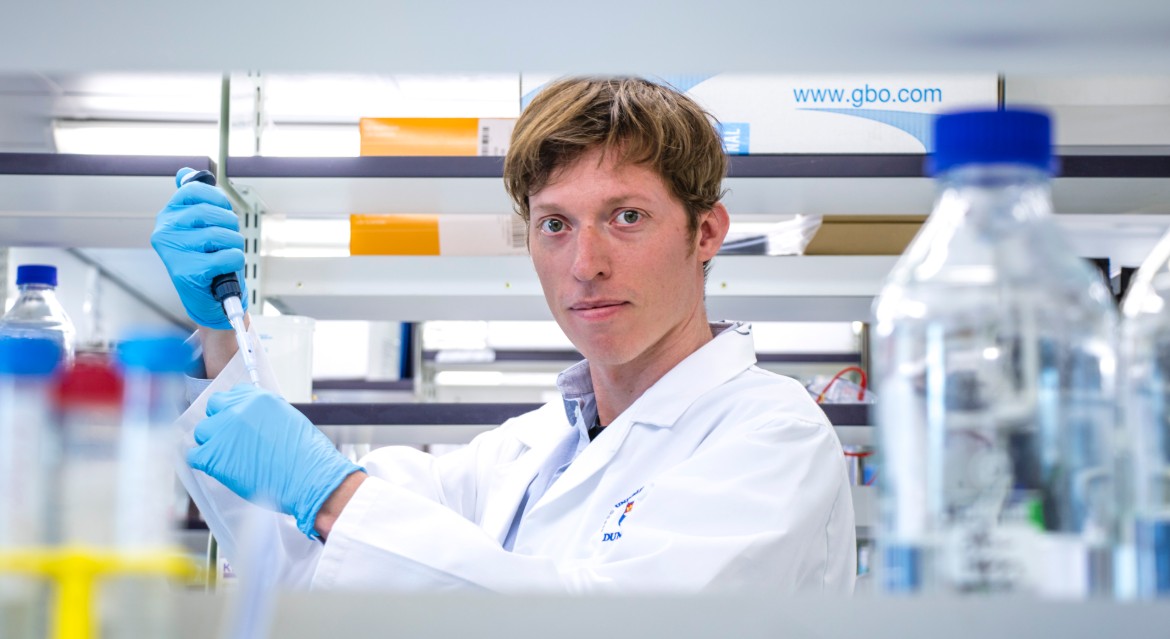Dundee cancer scientist’s £1 million ceasefire mission
Published On Fri 14 Jun 2019 by Dominic Glasgow

A University of Dundee scientist has been awarded £1.4 million from Cancer Research UK to develop research that could bring a ceasefire to cellular warfare taking place within our DNA that can cause blood cancers such as Leukaemia.
Dr Kasper Rasmussen is one of only five researchers this year to have been awarded a prestigious Career Development Fellowship by the charity.
Dr Rasmussen, who joined the University in June 2018, said the funding will allow him to set up a research group at Dundee to study the biological warfare taking place between two enzymes which when mutated, increase the risk of life-threatening blood cancers.
He said, “I’m very excited by the possibility to keep on exploring the interplay between the TET2 and the DNMT3A enzymes, which control DNA methylation. These opposing forces are in a constant state of flux but when you mutate them, they create similar premalignant cells in the blood which can develop into full-blown Leukaemia or Myeloid Dysplastic Syndromes.
“The need to develop a deeper understanding of how DNA methylation affects gene expression is greater than ever. Currently, those suffering from Acute Myeloid Leukaemia, one of the diseases these mutations promote, are treated with chemotherapy but sadly more often than not they die because of disease relapse that cannot be stopped in its track. Understanding the role of DNA methylation in this process might provide a way to prevent this from happening by exploiting vulnerabilities shared by malignant and premalignant cells alike.”
Cancer Research UK awards Career Development Fellowships to outstanding scientists to support them in establishing their own independent cancer research group.
World leaders in research have been discovered through the charity’s Fellowship Awards and the work they produce is of the highest international quality.
Karen Noble, Cancer Research UK’s Head of Research Careers, said, “If we’re to bring forward the day when all cancers are cured, it’s vital we recruit the best people and help them grow at every stage of their career. Our fellows make crucial discoveries that increase our fundamental understanding of cancer and help develop new and better cancer medicines, tests and treatments.
“The main treatment for acute myeloid leukaemia is chemotherapy, and this has been the case for decades. Dr Rasmussen’s research will help us to understand what goes wrong in the body to cause this aggressive blood cancer. With this new insight, we may be able to develop more targeted and effective treatments for the disease with fewer side effects, helping to improve patients’ quality of life.”
For media enquiries contact:
Dominic Glasgow
Media Relations Officer
University of Dundee
Nethergate, Dundee, DD1 4HN
Tel: +44 (0)1382 385131
Email: d.w.glasgow@dundee.ac.uk